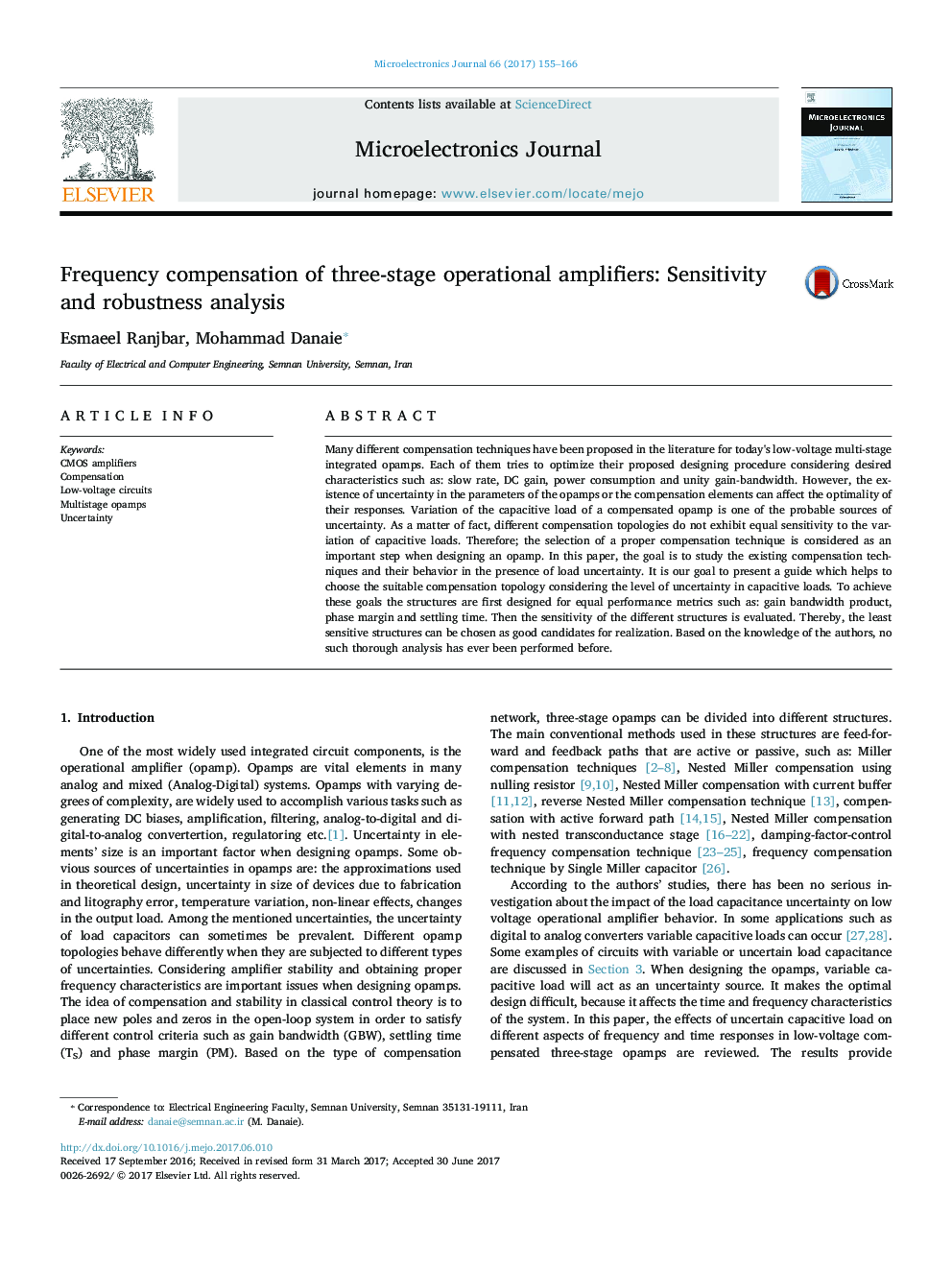| Article ID | Journal | Published Year | Pages | File Type |
|---|---|---|---|---|
| 4971293 | Microelectronics Journal | 2017 | 12 Pages |
Abstract
Many different compensation techniques have been proposed in the literature for today's low-voltage multi-stage integrated opamps. Each of them tries to optimize their proposed designing procedure considering desired characteristics such as: slow rate, DC gain, power consumption and unity gain-bandwidth. However, the existence of uncertainty in the parameters of the opamps or the compensation elements can affect the optimality of their responses. Variation of the capacitive load of a compensated opamp is one of the probable sources of uncertainty. As a matter of fact, different compensation topologies do not exhibit equal sensitivity to the variation of capacitive loads. Therefore; the selection of a proper compensation technique is considered as an important step when designing an opamp. In this paper, the goal is to study the existing compensation techniques and their behavior in the presence of load uncertainty. It is our goal to present a guide which helps to choose the suitable compensation topology considering the level of uncertainty in capacitive loads. To achieve these goals the structures are first designed for equal performance metrics such as: gain bandwidth product, phase margin and settling time. Then the sensitivity of the different structures is evaluated. Thereby, the least sensitive structures can be chosen as good candidates for realization. Based on the knowledge of the authors, no such thorough analysis has ever been performed before.
Related Topics
Physical Sciences and Engineering
Computer Science
Hardware and Architecture
Authors
Esmaeel Ranjbar, Mohammad Danaie,
